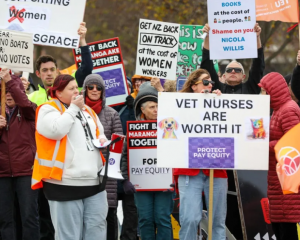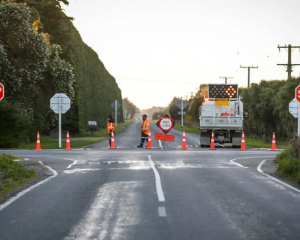
Mr Little strongly hinted at changes to bail reforms passed five years ago as a way of addressing the fast-growing prison muster, which is still expanding at a time when the national crime rate is static.
"It's pretty obvious that the bail laws are not being applied as was intended when the bail law went through Parliament in 2013," Mr Little said yesterday.
He would not yet commit to changes, saying it would be discussed at a high-level criminal justice summit in August.
"What is certain is we need to have a close look at them, because it is quite clear they are not working as the previous Government had said they were meant to work."
At the time, Labour supported the bail changes, which were led by then justice minister Judith Collins and reversed the burden of proof for people accused of serious crimes.
That meant people accused of murder or Class A drug offences or repeat offenders in kidnapping, aggravated burglary and other serious cases had to show why they should be bailed, rather than the police showing why they should be locked up.
Mr Little said the stricter laws had been applied too broadly and had led to a far greater incarceration rate than predicted.
The Ministry of Justice had advised in 2013 that 50 extra prison bed nights a year would be required as a result of the changes. Instead, 800 extra bed nights a year had been required.
"It was meant to apply just to the most serious offences," Mr Little said. "But actually the people being remanded in custody are across the full range of offences, including things like burglary and other kinds of lower-level offences."
Ms Collins said yesterday that any reversal of her reforms would be a mistake.
They were driven by the "very real concerns" that people charged with violent, sexual and drug offences were getting bailed and reoffending, she said.
In particular, there was a concern that methamphetamine manufacturers and domestic abusers were getting bail and reoffending or intimidating their accusers while they awaited trial.
"The public at the time were very pleased that we were taking that step.
"And the public today will be very unhappy to think that Labour is considering undoing what was an incredibly important step for families of domestic violence in particular."
Mr Little said another factor to consider was the absence of adequate housing for accused offenders seeking bail, which was making judges hesitant to approve their release into the community.
The prison muster is 10,645 at present, leaving just 355 spare beds. It is forecast to rise to 12,000 by 2025.
Corrections is urgently building pop-up jail cells and has sought approval for a 3000-bed mega-prison in rural Waikato.
That places Labour in a difficult position because the party has promised to cut the prison population by 30% in 15 years.
Mr Little said Waikeria would definitely be expanded; it was just a matter of by how much.
He appeared to play down the possibility of an expansion to 3000 beds.
"I can't say what the decision is going to be, except to say there are way more options than just the mega-prison concept."
The Government will make a decision on the prison in mid-May, after pushing back the deadline twice.
Comments
If there is a crisis in housing prisoners, send only killers and those who offend against people, not property, to prison.
That means amending the Judicial system, which is unlikely.












